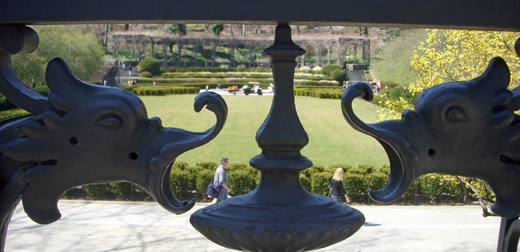Reading Note: Homework
Wednesday, April 8th, 2009Colm TóibÃn’s story in this week’s New Yorker, “The Color of Shadows,” would not have been out of place in his short-story collection, Mothers and Sons, although not only does the mother not make an appearance but we never really know why. An old friend tells Paul, the son — one of Mr T’s virtual orphans —
“It was awful what happened, of course, and I knew your mother well.”
But we’re not told what happened. It seems to have involved drink. Paul presumably knows, but that recollection does present itself in his thoughts. The important thing is that he did not know what happened when it happened — when he was a boy, and his late father’s sister, Josie, took him in.
Josie made sure that he was happy and that he studied hard. As soon asit became obvious that he was good at maths and science, she learned everything she could about careers for him and what points he would need. She paid for grinds so that he would have honours in maths and thus gain entrance to University College, Dublin, to study engineering.
The story is framed by Josie’s departure from the house in which she raised Paul, and by her death, several years later, in the nursing home run by the friend who knew his mother well. Paul finds the house, without Josie, to have “a smell of damp and old cooking.”
When he went upstairs and looked at his old bedroom, he noticed how worn the carpet was and how the color on the wallpaper had faded. He must, he thought, have noticed this before, but now the room seemed shabby and strange, almost unfamiliar, and not the room he had slept in every night throughout his childhood, with the small desk in the corner where he did his homework.
This passage comes back to me as one of the story’s most insistent, bringing to life as it does the small boy, bent over his books, the “home” in “homework” as salient as the smell of old cooking.
We’re not told what Paul’s mother did, or why she abandoned her son. But this is not a mystery that the reader must clear up. (The reader can easily imagine any number of sordid fait divers.) Rather, it’s Paul’s sense of the mystery that impinges. He may know “what happened,” but he will never comprehend it. In the language of healing, he might come to “understand” it well enough, and forgive his mother, if that’s what’s to be done, even though he goes on refusing to contact her. (For she is not dead.) But what he understands is the world that Josie brought him up in.
He remembered her always as a middle-aged woman with gray hair, someone content as long as nothing new or unusual was happening, someone always happier in her own house when the day was over and everything was in its place.
There is no room for Paul’s mother in such a world, or in such an understanding of the world. And yet it cannot be said that Josie took the place of his mother. There is no trace of the American disregard for facts; no doting aunt declaring, “I’m your mother now.” There is all the caring in the world, but no mother’s love — or whatever it is that mothers have to offer. She may never be mentioned between Josie and Paul, but she is not effaced; and she is there at the end.
Her life and the one that he had lived apart from her filled his mind now, as though a space had been made for them, the shadows cleared, by what hapd happened in the night and by Josie’s going. He found himself inhaling and releasing breath as a way of nourishing that space, and he breathed in hard for a second at the thought that nourishing it like this was maybe all he would be able to do with it.









